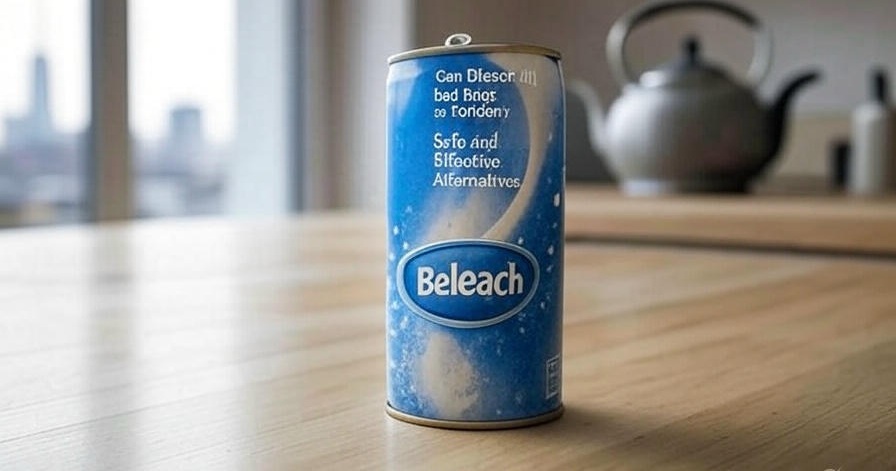
Introduction
Bed bugs are a persistent problem across London, invading homes, flats, and hotels, and causing distress with their itchy bites. When faced with an infestation, many people reach for household products like bleach, hoping for a quick and affordable solution. But can bleach kill bed bugs? In this detailed guide, we’ll explore the effectiveness of bleach, its risks, and why professional treatments from ThermoPest Bed Bug Treatment London offer safer and more reliable alternatives.
Bed Bugs: A London Nightmare
Bed bugs (Cimex lectularius) are small, reddish-brown insects that feed on human blood, often hiding in mattresses, furniture, and cracks in walls. London’s dense population, frequent travel, and mix of old and new housing make it a hotspot for bed bug infestations, from Notting Hill to Newham.
Why Are Bed Bugs So Hard to Eliminate?
Bed bugs are notoriously difficult to eradicate due to:
- Hidden Habitats: They conceal themselves in tiny crevices, evading most DIY treatments.
- Prolific Breeding: A single female can lay hundreds of eggs, leading to rapid reinfestation.
- Insecticide Resistance: Many bed bugs are resistant to common over-the-counter pesticides.
With these challenges, it’s understandable why people wonder if bleach, a powerful household cleaner, can tackle bed bugs. Let’s dive into the facts.
Can Bleach Kill Bed Bugs?
Bleach (sodium hypochlorite) is a strong disinfectant used for cleaning and sanitising. Its potent chemical properties make it seem like a potential bed bug killer, but its effectiveness is limited.
How Bleach Affects Bed Bugs
Bleach can kill bed bugs on direct contact by breaking down their exoskeleton, causing dehydration or death. However, this only works if the bleach physically touches the bugs, and there are significant limitations to its use.
Potential Benefits of Bleach
- Readily Available: Bleach is a common household product found in most homes.
- Quick Action: It can kill bed bugs on contact in small, visible areas.
- Low Cost: An inexpensive option for spot treatment.
Limitations of Using Bleach
Despite its initial appeal, bleach is not a practical solution for bed bug infestations:
- Contact-Based Only: Bleach only kills bugs it directly contacts, leaving hidden bugs and eggs unaffected.
- Ineffective on Eggs: Bed bug eggs have a protective shell that resists bleach.
- Damage to Surfaces: Bleach can stain or damage fabrics, mattresses, and furniture, making it unsuitable for widespread use.
- No Residual Effect: It doesn’t prevent surviving or new bed bugs from reinfesting.
- Health Risks: Improper use can cause respiratory irritation, skin burns, or eye damage.
These drawbacks make bleach an unreliable and risky choice for bed bug control in London homes.
Health and Safety Risks of Using Bleach
Using bleach to combat bed bugs comes with significant health concerns. The NHS warns that exposure to bleach fumes or direct contact can cause respiratory issues, skin irritation, or chemical burns. In London’s often cramped flats with limited ventilation, these risks are heightened. Additionally, bed bug bites can lead to secondary infections if scratched, making it critical to address infestations safely and effectively.
Safe and Effective Alternatives to Bleach
While bleach may kill some bed bugs, it’s not a comprehensive or safe solution. Professional pest control offers far better results. At ThermoPes, we use advanced methods to eradicate bed bugs in London homes and businesses.
Heat Treatment: The Most Reliable Method
Heat treatment is a proven, non-toxic way to eliminate bed bugs. By raising the temperature of an infested area to 50°C or higher, all life stages—eggs, nymphs, and adults—are killed. ThermoPest’s cutting-edge heat technology penetrates deep into furniture, mattresses, and walls, ensuring complete eradication.
Benefits of Heat Treatment
- Thorough: Reaches hidden areas where bed bugs hide.
- Safe: No harmful chemicals, making it ideal for families and pets.
- Fast: Often completed in a single session, minimising disruption.
Integrated Pest Management (IPM)
ThermoPest employs IPM, combining heat treatment with techniques like vacuuming, steaming, and monitoring. This holistic approach ensures long-term results while reducing chemical use, perfect for London’s varied properties.
Preventing Bed Bug Infestations in London
Eliminating bed bugs is only half the battle—preventing their return is key. Here are some practical tips to keep your home pest-free:
Inspect Second-Hand Goods
Check used furniture, clothing, or electronics for signs of bed bugs, such as dark spots or shed skins, before bringing them indoors.
Use Protective Encasements
Invest in bed bug-proof mattress and pillow covers to limit hiding spots.
Be Vigilant When Travelling
Inspect hotel rooms and wash clothes at high temperatures after returning home.
Act Promptly
If you suspect an infestation, contact a professional immediately to prevent it from spreading.
Conclusion: Trust ThermoPest for Bed Bug Eradication
So, can bleach kill bed bugs? While it may kill some on contact, it’s neither safe nor effective for eliminating an infestation. Professional treatments, like those offered by ThermoPest, provide a reliable and lasting solution. Don’t let bed bugs disrupt your life—contact ThermoPest Bed Bug Treatment London today for expert help and a pest-free home.

